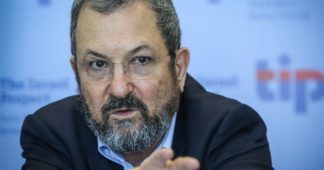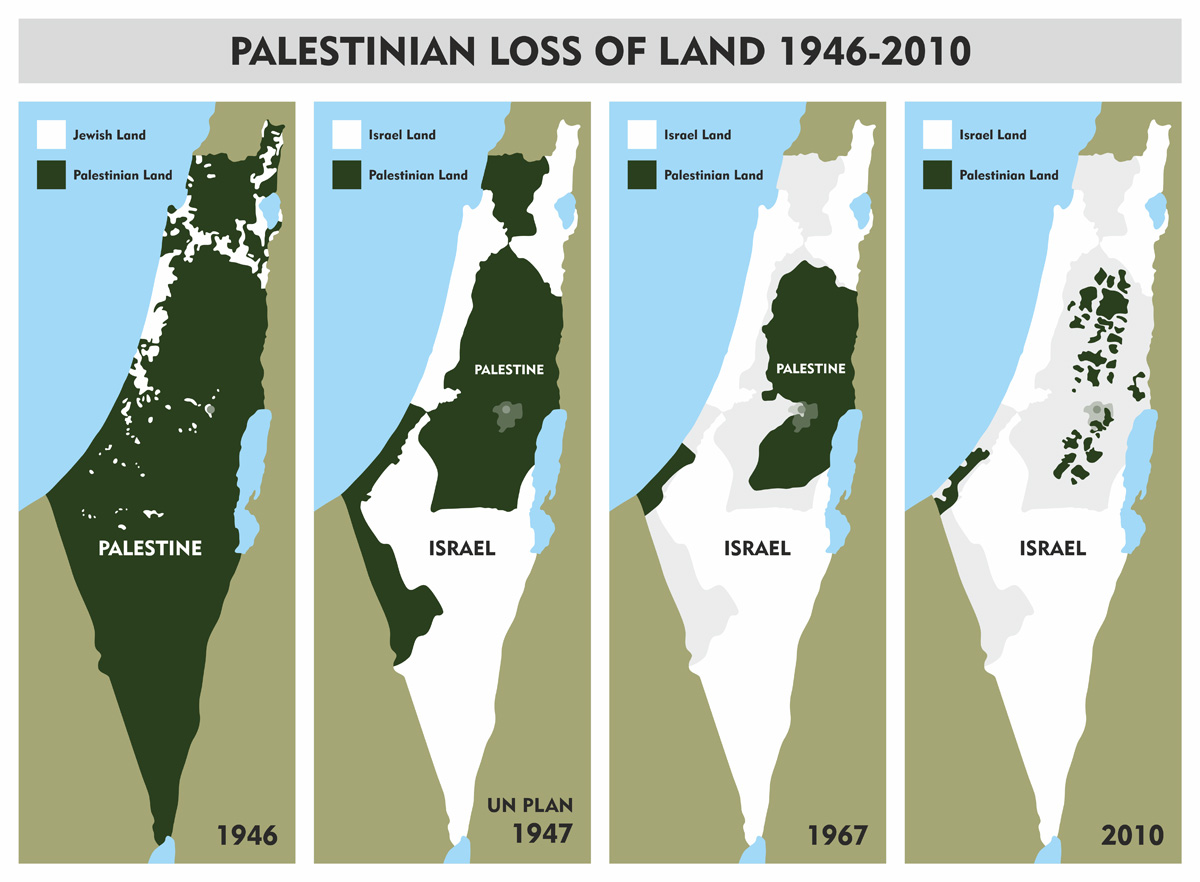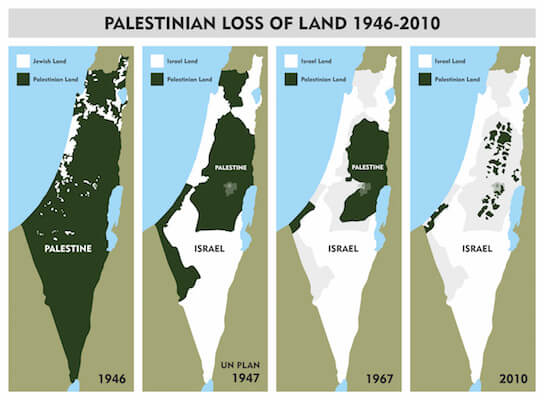By Barbara Opall-Rome
TEL AVIV, Israel – Fed up with security-sapping paralysis at home and fearful of diplomatic fallout abroad, a group of ex-generals here is pushing its own initiative to break through the deadlock blocking prospects for an eventual two-state solution for Israel and Palestine.
On Sunday, Commanders for Israel’s Security (CIS), a group of more than 200 retired generals from the Israel Defense Forces (IDF), Mossad and Shin Bet, delivered to government ministers, deputy ministers and lawmakers its “Security First” plan for improving Israel’s security situation and international standing.
Recognizing that military force alone will not solve Israel’s security problems with Palestinians in the West Bank or in Gaza, the plan prescribes a combination of security, civil and economic measures aimed at keeping the promise of a two-state solution alive and encouraging Israel’s integration into a regional arrangement with pragmatic Arab Sunni states.
The 67-page document, complete with detailed maps, represents the first phase of a nearly year long effort by a veritable Who’s Who of Israel’s former security establishment.
It assumes that no major breakthrough is feasible at this time regarding two-state peace talks, yet rejects claims by the current Israeli government that the conflict can be managed for the foreseeable future.
“The policy of ‘managing the conflict’ has turned out to be a dangerous illusion. In practice, the situation has only gotten worse…
“The time has come to be proactive rather than being dragged along by events, continually reacting to international or Palestinian initiatives or the actions of extremists on both sides,” the CIS report states.
Retired Maj. Gen. Amnon Reshef, CIS chairman, said one of the advantages of the plan is that doesn’t deal with whether or not there is a peace partner on the other side. “We’ve already wasted too much time to remain locked in futile debates on this issue.”
In an interview Sunday, Reshef said CIS has prescribed a multi-disciplinary set of steps that can be taken now, regardless of the validity of the argument that has prevented successive Israeli governments from taking needed action. “Therefore, we are urging the government to adopt its plan in its entirety, and not piece meal,” he said.
“We are saying that Israel is strong. It must seize the initiative to determine its destiny and shape a better future for our children and those of our neighbors. And since there is no exclusive military solution to the conflict or to waves of terror, we are saying that we must dramatically change the rules of the game,” Reshef said.
According to the CIS Chairman, “Only by adopting a holistic package of security measures, policy clarifications and generous civil-economic measures will we be able to improve security and reap dividends regionally and internationally.”
Specifically with regard to the West Bank, the plan calls for eliminating “political ambiguity” regarding the future of the West Bank while enhancing security of Israelis living there pending a permanent status agreement.
CIS experts insist their plan is not a unilateral withdrawal, but merely aimed at rendering facts on the ground ripe for an eventual diplomatic settlement.
As such, it insists on continued and IDF deployment until a permanent status agreement with the Palestinians ushers in “alternative, concrete and sustainable security arrangements.”
To that end, the plan calls for immediate completion of the security barrier throughout the West Bank to reduce “friction” between Israelis and Palestinians there.
“A security fence separating the Palestinians from most of the Israeli population will create a situation in which they live ‘beside each other,’ not ‘inside each other.’ Friction between the two populations will be reduced considerably, thereby allowing each group to lead a more normal life.”
It calls for large Jewish settlement blocks west of the security fence and in Jewish neighborhoods of East Jerusalem to remain under Israeli sovereignty, yet prescribes a construction freeze on new settlements or infrastructure east of the fence.
“Violation of the settlement freeze as spelled out above will increase friction with the Palestinian population on the West Bank, create additional security problems; undermine Israel’s international standing; and close options for a future negotiated settlement.”
Moreover, it calls for bolstering the administrative power of the Palestinian Authority (PA) through economic investment, agricultural development and quality of life improvement for Palestinians.
Finally, the CIS study calls for enactment of what it calls an “Absorption, Compensation and Voluntary Evacuation Law,” which would fund alternative housing within the Green Line or in West Bank settlement blocks west of the newly completed security fence.
On the issue of Gaza, the CIS prescribes steps aimed at preventing what it calls “a humanitarian disaster on Israel’s doorstep.” In order to prevent further rounds of warfare and strengthening of forces even more extreme than the Hamas organization that administers the strip, CIS calls for a parallel approach of cracking down on infiltrators at the same time as Israel works with international partners and organizations to lessen economic privation. Quality of life improvements in the Strip must be administered in a way that bolsters the clout of the Palestine Authority, CIS experts insist.
“The Israeli defense establishment needs to balance the urgency of Gaza rehabilitation with the evidence that goods slated for reconstruction do not find their way into Hamas hands and serve its ‘tunnel industry.”
The report also warns that “any progress in Gaza reconstruction that is not matched by constructive steps on the West Bank sends the message that Israel rewards only those who use force against it.”
A follow-on CIS report delving into specific security prescriptions for supporting a two-state solution will be presented in the autumn, prior to French-led plans for an international conference on Israel-Palestine and the lame duck period after the US elections in November and before US President Barack Obama leaves the White House in January.
“We are focusing on a holistic approach to enhance security and change facts on the ground. We are deliberately working around any notion of peace in the near term, since a peace agreement is not very popular in Israel these days,” said Rolly Gueron, a retired senior official in Mossad with the rank of major general.
When asked if it’s not too late to salvage the notion of progress toward a two-state peace deal, Gueron replied: “There is movement on multiple fronts — regionally and internationally — to keep this notion alive. We want to make sure Israel reclaims the initiative and that our security concerns are fully considered.”
He added, “Time is not on our side, but there is still time.”
Gueron and Reshef said the CIS report does not specifically criticize the government of Israeli Prime Minister Benjamin “Bibi” Netanyahu, but rather urges it to adopt its prescriptions. “If Bibi makes a move, we will wholeheartedly support him,” Gueron said.
As for Avigdor Lieberman, the hawkish West Bank settler appointed by Netanyahu as Israel’s next defense minister, both men said they expected him to demonstrate moderation.
“I don’t know what’s in the mind of Lieberman, but I assume that he’ll be a lot more pragmatic than people think,” said Reshef.
Read also:
OK, Netanyahu? Israeli Generals Come Up With Own Peace Plan
And here is the full document:











